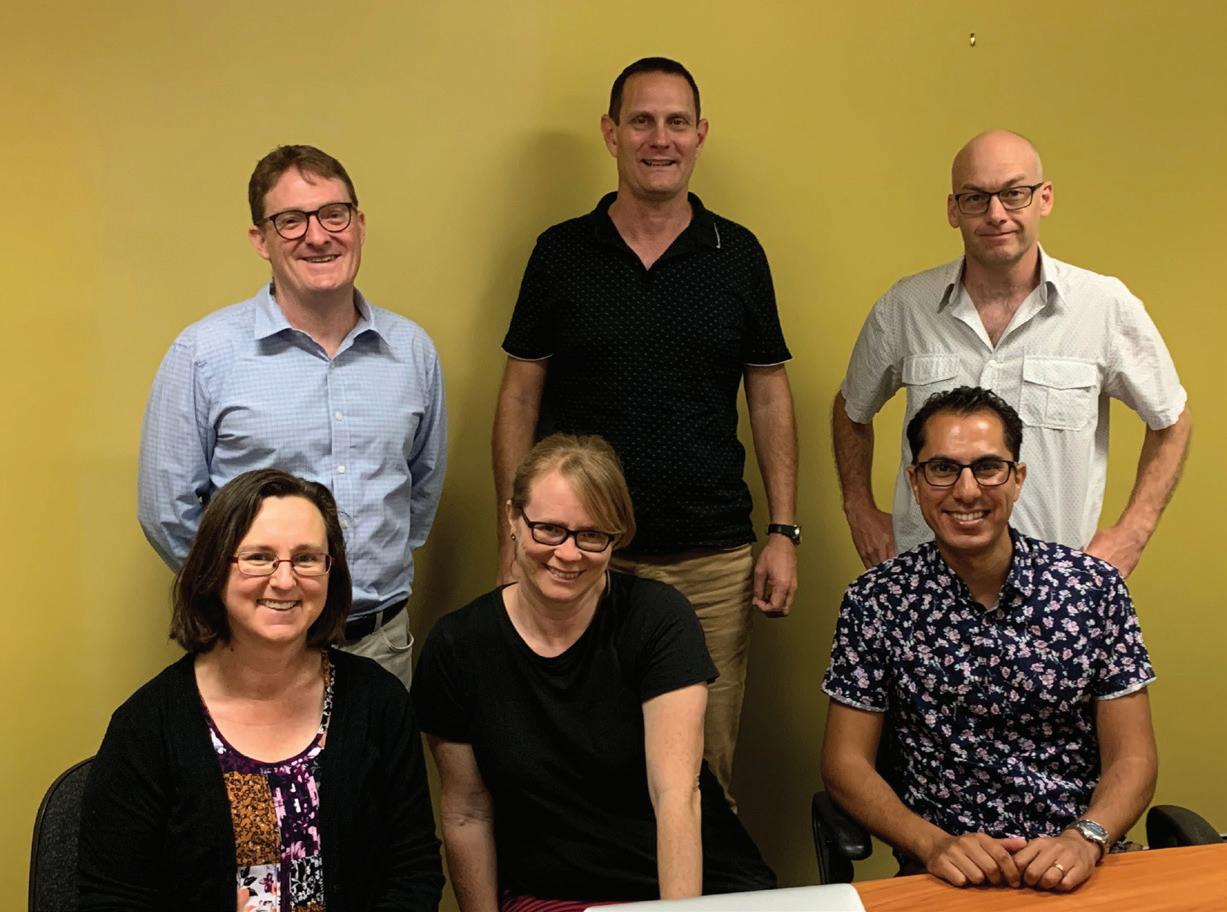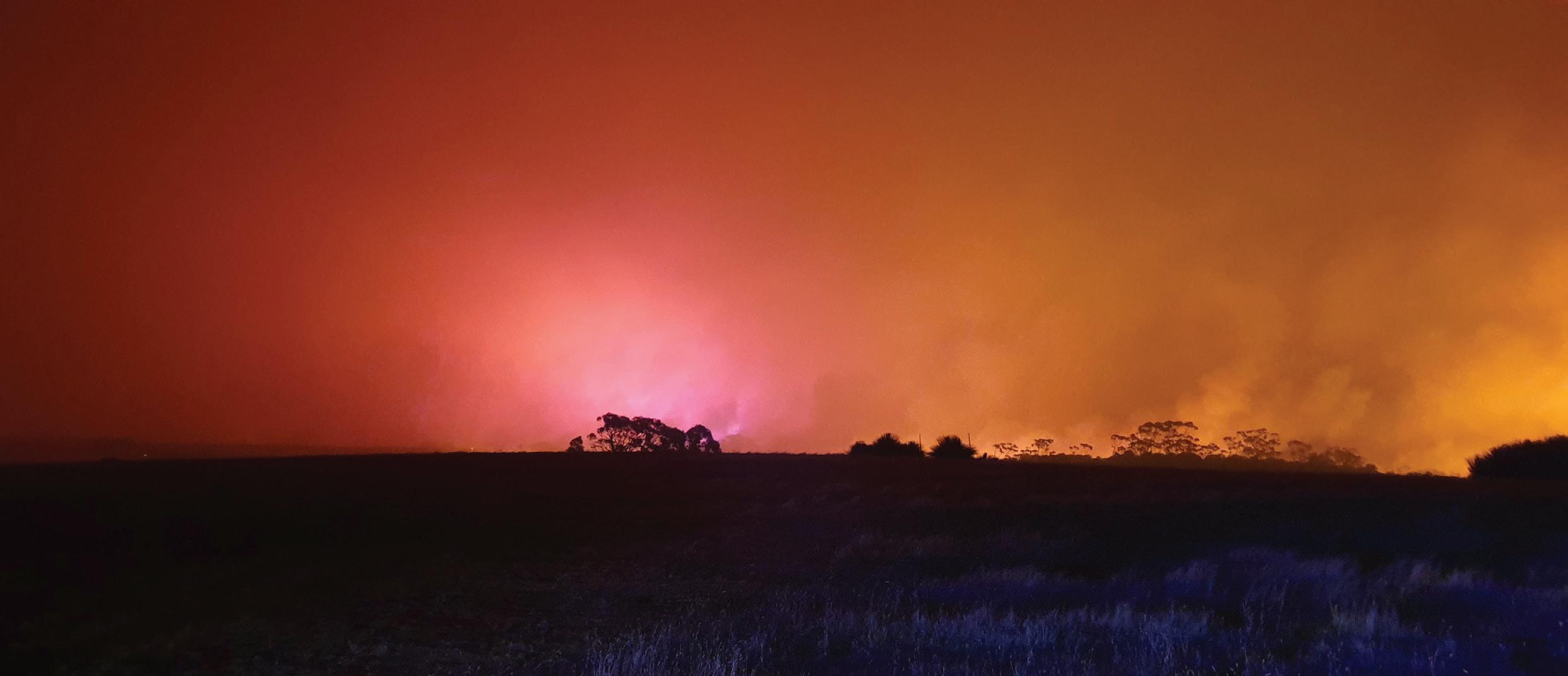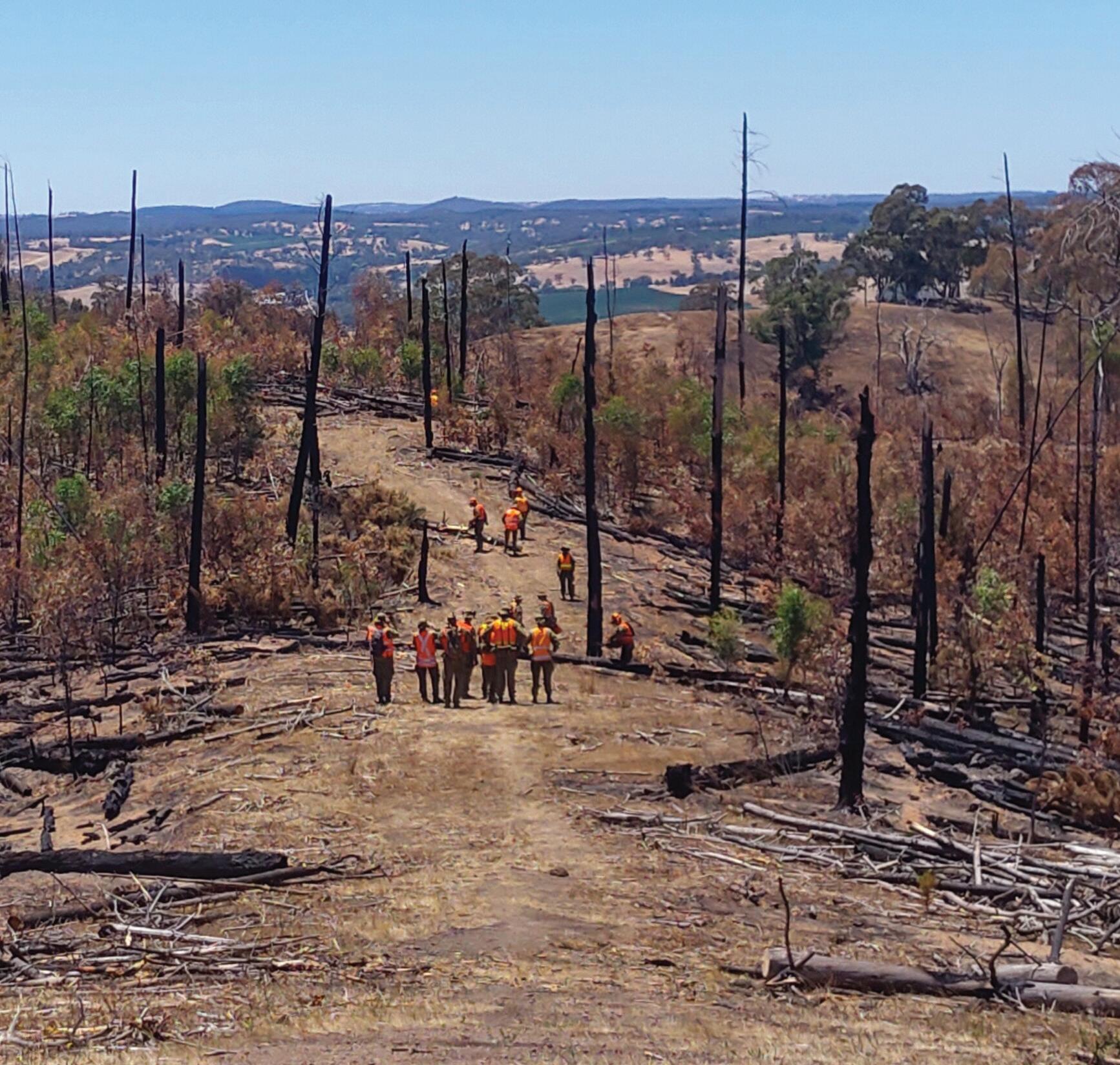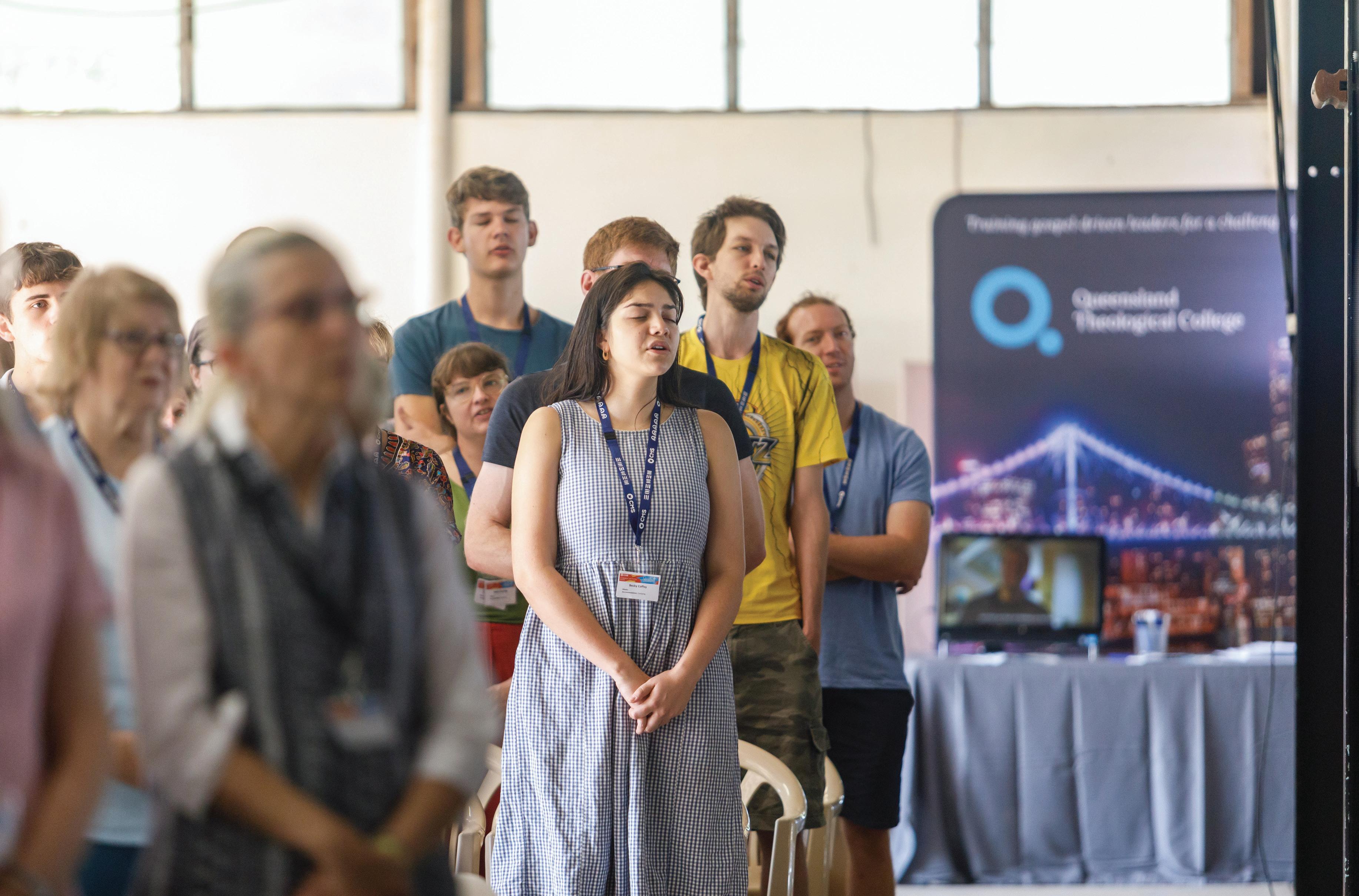
26 minute read
Time with God
Time with God Read the entire Bible in 2020
Week 15 □ Judges 7-8; Luke 22 □ Judges 9-11; Psalm 17; Luke 23 □ Judges 12-16; Psalm 146; Luke 24 □ Judges 17-18; Psalm 21; Acts 1 □ Judges 19-21; Acts 2 Week 16 □ Ruth 1-2; Acts 3 □ Ruth 3-4; Psalm 37; Acts 4 □ 1 Samuel 1-2; Psalm 120; Acts 5 □ 1 Sam 3-5; Psalm 23; Acts 6 □ 1 Sam 6-8; Acts 7 Week 17 □ 1 Sam 9-10; Acts 8 □ 1 Sam 11-13; Psalm 38; Acts 9 □ 1 Sam 14; Psalm 124; Acts 10 □ 1 Sam 15-16; 1 Chronicles 1; Psalm 39; Acts 11 □ 1 Sam 17; 1 Chr 2; Acts 12 Week 18 □ 1 Sam 18-19; 1 Chr 3; Psalm 59; Acts 13 □ 1 Sam 20; 1 Chr 4; Psalms 56, 57 & 142; Acts 14 □ 1 Sam 21-22; 1 Chr 5; Psalm 52; Act 15 □ 1 Sam 23-24; 1 chr 6; Psalm 54; Acts 16 □ 1 Sam 25; 1 Chr 7; Acts 17 Week 19 □ 1 Sam 26-27; 1 Chr 8; Acts 18 □ 1 Sam 28-29; 1 Chr 9; Acts 19 □ 1 Sam 30-31; 1 Chr 10; Acts 20 □ 2 Sam 1-2; 1 Chr 11; Psalms 96 & 106; Acts 21 □ 2 Sam 3-5; 1 Chr 12; Psalm 122; Acts 22
Week 20 □ 2 Sam 6; 1 Chr 13; Psalm 60; Acts 23 □ 1 Chr 14-16; Acts 24 □ 2 Sam 7-8; 1 Chr 17; Psalm 132; Acts 25 □ 2 Sam 9-10; 1 Chr 18-19; Psalm 89; Acts 26 □ 2 Sam 11-12; 1 Chr 20; Psalms 51 & 32; Acts 27 Week 21 □ 2 Sam 13-14; Acts 28 □ 2 Sam 15-17; Psalm 3 & 63; Romans 1 □ 2 Sam 18-20; Psalm 34; Rom 2 □ 2 Sam 21-23; Psalm 18; Rom 3 □ 2 Sam 24; 1 Chr 21; Rom 4 Week 22 □ 1 Chr 22-25; Psalm 78; Rom 5 □ 1 Kings 1; 1 Chr 26-28; Rom 6 □ 1 Kings 2; 1 Chr 29; Rom 7 □ 1 Kings 3; 2 Chr 1; Psalm 42; Rom 8 □ 1 Kings 4; Proverbs 1-2; Psalm 43 Rom 9 Week 23 □ Prov 3-5; Rom 10 □ Prov 6-7; Psalm 7; Rom 11 □ Prov 8-10; Psalm 144; Rom 12 □ Prov 11-13; Psalm 8; Rom 13 □ Prov 14-15; Rom 14 Week 24 □ Prov 16-18; Rom 15 □ Prov 19-21; Psalm 40; Rom 16 □ Prov 22-23; Psalm 117; 1 Thessalonians 1 □ Prov 24-25; Psalm 41; 1 Thess 2 □ Prov 26-28; 1 Thess 3
Week 25 □ Prov 29-31; 1 Thess 4 □ Song of Songs 1-3; Psalm 72; 1 Thess 5 □ Song of Songs 4-6; 2 Thess 1 □ Song of Songs 7-8; Psalm 127; 2 Thess 2 □ 1 Kings 5; 2 Chr 2; 2 Thess 3 Week 26 □ 1 Kings 6; 2 Chr 3; 1 Timothy 1 □ 1 Kings 7; 2 Chr 4; Psalm 44; 1 Tim 2 □ 1 Kings 8; Psalm 30; 1 Tim 3 □ 2 Chr 5-7; Psalm 121; 1 Tim 4 □ 1 Kings 9; 2 Chr 8; 1 Tim 5 Week 27 □ 1 Kings 10-11; 2 Chr 9; 1 Tim 6 □ Ecclesiastes 1-3; Psalm 45; 2 Tim 1 □ Eccl 4-6; Psalm 125; 2 Tim 2 □ Eccl 7-9; Psalm 45; 2 Tim 3 □ Eccl 1--12; 2 Tim 4 Week 28 □ 1 Kings 12; 2 Chr 1--11; Titus 1 □ 1 Kings 13-14; 2 Chr 12; Psalm 47; Titus 2 □ 1 Kings 15; 2 Chr 13-14; Titus 3 □ 2 Chr 15-16; 1 Kings 16; Philemon □ 1 Kings 17-18; Psalm 119; Jude
When was GiST established? In 2013, a team was formed to take on the long-established role of the Presbyterian Church of Queensland’s Public Questions Committee. Why was GiST established It was formed to freshly explore the challenges we experience as Christians living in Queensland today. It goes without saying that we see and feel our local cultural attitudes changing in all sorts of ways at work, in education, in our families, our chats to neighbours, our shopping, our online interactions, and our enjoyment of sport and the arts. The changes are rapid and complex. We’ve noticed how easy it is for Christians to be frightened as we sense this profound gap in values between ourselves and others. It can be hard to know how to even begin explaining why we think what we think. We can sometimes respond by quietly retreating, other times by reacting in anger and frustration. More often than we realise we simply blend in. Thinking and doing the same as everyone else comes to feel perfectly natural. What is GiST’s purpose? Its purpose is to equip believers in Presbyterian Church of Queensland’s (PCQ) churches to: 1. Live faithfully for Jesus in our community. We all need God’s help to honestly recognise the ways we imbibe worldly wisdom. We need God’s Spirit to renew our minds so we can see every aspect of our daily lives afresh through a gospel lens and live confidently and joyfully in light of it. Each year GiST explores a gospel centred approach to some key issues we face living in our community which can then be applied to other parts of our lives. 2. Engage in gospel-hearted apologetics that point to the great hope we have in Jesus. The desire of the GiST team is to help believers prayerfully and actively seek opportunities to love their neighbours, thoughtfully speaking gospel wisdom to their needs and concerns, and praying with depth of biblical insight. Sharing the gospel has always been fraught with difficulty. But we want to encourage believers that since our powerful, merciful God is always sitting on His throne, we can confidently seek ways to explain our gospel reasoning, even to those we most fear. We encourage believers to do this as they speak to neighbours, work colleagues and policy makers in the public square. How does GiST go about serving that purpose? Our strategy has been to start by doing the hard, biblical thinking on an area and writing a ‘background’ paper. We have done a number of these papers over the last seven years including The Gospel and Humanity, The Gospel and Environment, The Gospel and Abortion and The Gospel and VAD (Voluntary Assisted Dying). We will shortly be releasing revised versions of our paper on Sexuality and Gender. Often these papers are reviewed and adopted by the PCQ Assembly, which can all be viewed on our website: www.gist.org.au. With that background work in place, we then produce shorter, more accessible resources also available on our website. Examples of our articles are #MeToo and God’s Justice, Speaking Well of Jesus and How do you get from VAD to Jesus?. Three resource pages have been produced to help believers think and act on particular issues facing our world today. They are titled Abortion, Voluntary Assisted Dying and Speaking Freely About Jesus. Robyn Bain (GiST Committee) GiST has also produced interviews with local believers who have experienced abortion up close and one with a Queensland Christian in the corporate workplace on speaking freely about Jesus. In 2018, a podcast on abortion in partnership with The Lydia Project from The Gospel Coalition Australia was released. Also in late 2018 we were particularly glad to run an event about religious freedom. An audio recording of that event can be downloaded from the website. During December 2019, we wrote a prayer for our country as we suffered through bushfire and drought. We are currently working on a briefing on the use of medicinal cannabis. Our website has available to read, submissions to the government, sourced from different organisations on a range of topics. What happens at the GiST Team meetings? The most important task at our meetings is discussing and critiquing our ideas and writing. We are thankful to God for nurturing within the team a culture of honest feedback, reflection and most importantly, a desire for gospel faithfulness. We also reflect on the experiences of believers around us in Queensland and brainstorm new ideas for serving them better. We sometimes interact with similar groups within the Presbyterian Church of Australia. And we pray! Who can be involved? Members of the GiST Team are elected by the PCQ Assembly each year. We work foremost in conversation with the ministers, elders and congregation members of PCQ churches, but we also seek to encourage Christians and our community more generally. Therefore, we warmly welcome questions, wisdom, suggestions and stories from anyone interested in living faithfully for Jesus. We can be contacted via our website— http://www.gist.org.au/contact/. We also encourage as many people as possible to pray that believers in churches around Queensland will live faithfully for Jesus and that many in our community will find rest and hope in the gospel of Jesus.

Ben Swift who has been a contributor to PresLife has woven together a series of musings into a philosophical book called Beyond the Fish Sticker. I have read his book twice and found him to be a very knowledgable individual. There were many written illustrations to help explain his point of view. I appreciated how Ben mentioned various theologians and other famous people that the reader could relate to, to support his claims. In the introduction, a summary of each chapter is given. As I came to each chapter, I kept referring back to this, to remind me of what its purpose was. The first three chapters were my favourites, particularly chapter one as it clearly explained what it means to be human. This paragraph stood out to me from chapter one under the heading Not so random: ‘It is exclusively through our understanding of who we are in relation to who God is that we come to comprehend what it means to be human. We have been gifted with the capacity to reflect the very nature of our Creator’. I have been encouraged from reading this book to dig deeper into God’s Word to know Him better. Editor, PresLife

In the Rearview Mirror – A reflection on the making of Beyond the Fish Sticker It’s certainly tempting in life to look back in regret at the many opportunities lost and to wish for a second chance to better align our lives with what we think is best for us. After all, has anyone with faith in God not wrestled with the confusion that sometimes lines the paths God places us on? Being raised the son of a pastor, as I was, provides no scaffold to popularity but it does bring to light who you are and who you belong to at a young age—something I value now more than ever. Although growing older seems to bring few benefits with it, it is my experience that time allows for a clearer picture of why God withholds from answering some prayers, often allowing His people to go through struggles that at times come close to breaking us. It also becomes clearer that a “No” from God has at times served as protection from a life leading far from Him. But what has this got to do with writing a book you ask? A good Christian book in my opinion comes from wisdom that is built on life experience, filtered through the lens of Christ. Ultimately this experience involves an intertwining of personal experience and the wealth of wisdom found in the writings of great thinkers from the past and present. As an author, I need to know if my thoughts can be trusted and supported by those who have spent lifetimes uncovering the truth of Christ as revealed throughout the Scriptures. In setting out to write Beyond the Fish Sticker I was determined to keep one common thread throughout the book: Truth. While I planned to build a book that drew upon many personal thoughts and connections from my own life, my goal was to always draw the reader back to ultimate, objective truth, that which so much of humanity has tried to execute under the knife of subjective truth—the truth that is found exclusively in Christ, the truth that sets people free. As Malcolm Muggeridge once suggested, “It is truth that died, not God”. If I were to try and write a book, it must play its part in reintroducing this life-giving truth, one that is very much alive, to the hearts and minds of its readers. My purpose is that they may be encouraged in heart and united in love, so that they may have the full riches of complete understanding, in order that they may know the mystery of God, namely Christ, in whom are hidden all the treasures of wisdom and knowledge. Colossians 2:2-3 Beyond the Fish Sticker is a journey that crosses paths with many different areas of life including music, film, science, philosophy, psychology and theology. Why? Because these are the areas of life that have shaped who I am. God speaks to us in amazingly diverse ways. It is a pocket-rocket of a book that can be found taking up small amounts of real-estate in the Christian Worldview, Apologetics or Philosophy sections of book stores worldwide. If you are interested in reading more you can contact Koorong or follow the link below. For those who decide to have a read, I hope you enjoy the journey. Ben Swift, Author https://morningstarpublishing.net.au/product/beyond-thefish-sticker/

Ben Swift completed an undergraduate degee at La Trobe University majoring in Botany and Zoology. He later completed post graduate studies in Education at RMIT and Librarianship at QUT. Ben has extensive experience in the field of Education, including teaching as an accredied Christian Studies teacher with Lutheran Education Queensland. He also works casually as a freelance writer in the area of Christian Thinking and Apologetics. Ben currently attends Wavell Heights Presbyterian Church in Brisbane with his wife and three daughters.
Summer so far has dealt us some challenging weather, leading to numerous fires around the country. As a CFS volunteer firefighter, I travelled to New South Wales in November 2019; Cuddlee Creek, South Australia in December 2019; and most recently, twice to Kangaroo Island—also in South Australia. Whilst I have not been directly affected by these events, I witnessed the losses and destruction that many people faced—not only the physical losses, but the emotional impact as well. Often with fires, you have the initial bad day in which the fire spreads out of control, then the following days are milder. This has been the case with Cuddlee Creek and Kangaroo Island. Whilst your primary task is to extinguish fires, it also involves helping the locals with their concerns or asking them “Are you ok? Is there anything we can do for you?”. One of the responses to that question was “Can you come and check the burning haystack every few hours so we can get some rest?”. It makes you realise how much the little things count. On my last visit to Kangaroo Island, most of my time was spent on night shift: patrolling areas, looking for hotspots and other hazards within burnt areas, as there was lots of unburnt—and often valuable—feed outside of these areas. I wondered why one thing burnt, yet the next didn’t. I am sure there are many locals who wondered the same, and others thankful they still have their lives. As a firefighter, I am very thankful for all the support communities put forward, not only to the impacted people in these areas, but also for the support provided to firefighters, and the other agencies and groups that came to help. As a Christian, I am also humbled to see how the Lord sends help and support in a time of need. Evan, member of Mount Gambier Presybterian Church, SA
Kangaroo Island, SouthAustralia



Kangaroo Island, SouthAustralia
Whilst South Australia has had several bushfires in 2019/2020, it has become obvious that those in the Adelaide Hills and on Kangaroo Island, have been the most severe and devastating. Commencing on 20 December 2019 and 3 January 2020 respectively, these two fires have resulted in three fatalities, 151 homes destroyed and have seen some 1,200,000 acres of flora and fauna succumb to the flames. These statistics in and of themselves are grim; however, more alarming is the immense psychological and spiritual trauma that has been inflicted upon those encountering the devastation. Fire affected residents have responded in a variety of ways consistent with the normal range of grief such as denial, sadness, anger, helplessness—and some have quite quickly come to a place of acceptance. During the intense heartache and suffering there have been glimmers of hope. The morning after the fires had gone through townships, there were residents rallying together commencing immediate relief efforts. One inspiring man— who had suffered the total loss of his family home and business—coordinated a citizen-led recovery effort which mobilized a team of local volunteers. His efforts lasted almost a week before handing it over to the local council.

On 3 January 2020, the Australian Defence Force commenced Operation Bushfire Assist which has seen 6,500 soldiers deployed across Australia. Almost a thousand of these are in direct support of fire affected communities in South Australia. There have been seemingly countless volunteers in fire affected communities from organisations such as Red Cross, Salvation Army, Uniting Church of Australia’s Disaster and Recovery Ministries, Islamic Relief Australia and several veteran-led organisations such as Team Rubicon from Queensland. Whilst both the volunteer and professional support has had an immeasurable impact, it is already becoming obvious that these relief and recovery efforts are temporary at best. The effects are going to be present long after all these good intentioned helpers leave. The local churches require intentional and strategic ministries that will endure the influx of support and be present beyond the recovery effort. Josh Bouzanquet, Army Chaplain, South Australia
Adelaide Hills, SouthAustralia



CEP Pres Life Ad 2020.indd 1
Persecuted Christians Around the World

This recent tour (November-December 2019) could be described with words such as: amazing, wonderful, enjoyable, fascinating or awesome—a thesaurus may provide more descriptive terms. But perhaps, the best way to describe the outcome of this trip would be to say, that it helped participants to better understand God’s plan for the salvation of His people, through visiting the locations of many of the scenes from the Bible. Our journey was designed to help us know God better, love Him more, and follow Him ever more closely. Prior briefings and onsite commentary from our tour leaders, Wes Redgen (QTC Lecturer) and Gary Millar (QTC Principal), focussed clearly on the relevant biblical texts, so that we understood the significance of each location in the history of redemption. Each day started with an exposition of scripture (by QTC students and others), and prayer which helped us focus on the sites we would visit that day. Most days featured an end of day time of reflection together, and preparation for the next day—this was of immense value.
We started and finished in Jordan, with most of our time spent in Israel, where we stayed in two places (Tiberius and Jerusalem) as our bases—this worked well. Every place we visited had its highlights. On our first day, we surveyed the plains of Moab from the heights of Mt Nebo in Jordan. We were reminded of the early stages of God’s plan to save a people for Himself by taking them out of Egypt to the land He promised to give them, so they could receive His blessing, and by faith participate in His salvation. The sites after this helped us better understand the progress of God’s plan through history, climaxing in redemption through the life, death and resurrection of our Lord Jesus Christ. At the end of our tour we visited one of the best preserved Roman cities (Jerash) in the world—a place filled with idols and temples of pagan worship. We were reminded that it was to cities just like this one that the Apostles and early Christians took the powerful Good News about our Lord Jesus, that brought many people to faith in our risen Saviour.
Our local tour guides were knowledgeable, helpful and very accommodating; the arrangements made for participants were well planned; the accommodation and food were of a high standard; we felt safe for the entire trip; and the weather was mild for most of the time.
So, yes the tour was for study purposes, but it was also highly enjoyable.
Was it worthwhile? Yes it was. Would I recommend it? Definitely! For both those who are QTC students and not.



Thanks are due to all who planned and ran this amazing tour to provide a fantastic time for the participants.


Rev Emmanuvel Jhonly, minister at Sandgate Presbyterian Church and a member of the Australian Presbyterian World Missions (Queensland) Committee (APWM Qld), shares his experiences from a three-week study tour he went on in November 2019. Together with others, I journeyed to the ends of the earth where it all began, to walk in the footsteps of our Saviour, Jesus Christ, and William Carey (a missionary from England). It was organised by Wycliffe Bible Translators Australia and coordinated by Keith Benn (one of APWM’s missionaries). Being part of this tour was a wonderful privilege. We learned: • What is ‘disciple-making’ all about? • Why is Bible translation absolutely essential to ‘making disciples of all ethnic groups’? • What is the status of Bible translation worldwide? • How can mother tongue speakers be trained to translate the Bible into their own languages? • How are translators from all over the world being trained in Jerusalem? • What do we learn in the Holy Land that will better prepare us to be effective disciple-makers in Australia and ‘to the ends of the earth’? Bangladesh In Kumkumari Bazar we met the Mother Tongue Translation Teams (The Kurux, Kolhe, Khyang and Tripura). We saw firsthand how the translation work is being done; the amount of work involved; and the challenges they face. The team translated a couple of bible verses from Greek to Tamil (one of the languages spoken in India)—this was eye opening. God also gave me an opportunity to share with the mother tongue translators, the importance of languages and translating the Bible (using my sermon from Genesis 11:1-9 The Tower of Babel as a reference). India English missionaries: William Carey, William Ward, Joshua and Hannah Marshman arrived at the beginning of the 19 th Century. Although they came chiefly to preach Christianity, they also dedicated themselves to assisting distressed people, creating social reconstruction and education for both boys and girls. They faced many challenges, such as difficulties from the British government and locals when trying to establish Mission Press and Serampore College, learning the languages and adjusting to a new environment. They also translated the Bible. We were given a guided tour by Peter De Vries of Serampore College. He shared with us about the history of India and the College. Having come from India, I thank God for the Gospel which came to my country, and for the missionaries—like William Carey—who sacrificed their lives in order to bring the light of the Gospel. Jordan Whilst in Jordan, we visited the spectacular sandstone City of Petra—built in the 3 rd Century by the Nabataeans. Learning about their history, culture and worship places was a wonderful experience. I also had the privilege of meeting with Nabataeans and Bedouins, and experiencing their hospitality. Israel As we traversed the route from Jerusalem to Capernaum we experienced first-hand where our Saviour walked. We also met different people along the way: Palestinian Arabs and Christians; Messianic Christians; Elias Chacour (author of the book Blood Brothers) who gave us our initial insight into the plight of Palestinians, and the challenges faced by Palestinian believers in Israel; and Rasha, a Palestinian and the General Secretary of the Fellowship of Christian Students in Israel (FCSI). She told us that when FCSI was formed, their constitution included a clause which stated the Board would be comprised of 50% Palestinian and 50% Messianic Jewish believers. Rasha also said, “What unifies us is far greater than what divides us”. Karmiel We worshiped with Pastor Yossi’s (Jew) church at Karmiel in Galilee one Sabbath day. He is working hard to reach people from all backgrounds. It was the first time for me to worship along with Jewish people, and I was reminded of the verse from Galatians 3:28.
The number one highlight for me during this trip was meeting different people from different nationalities and seeing how the Lord works in everyone’s lives. I was also encouraged to continuously trust in the Lord in every area of my life, and to not be afraid to face the giants and challenges. It challenged me to reach all people with the love of Jesus Christ whatever background or language they may come from, because Christ is not a saviour of one particular race or background; rather he is the Saviour of the world.


Many APWM missionaries serve in countries where missionary activity is unwelcome. This means we all have to take great care in how we handle any information relating to them. Consider these two real-life situations involving APWM missionaries: Scenario One A missionary speaks in confidence at a church. A well-meaning member of the congregation is very impressed with what is said. They write about the missionary and their overseas ministry in the church newsletter. The information that was spoken in confidence now becomes more widely known. It then gets worse! That same newsletter is put on the congregation’s website which is open for the whole world to see and search—the missionary doesn’t know about this. The information is now a ticking time bomb waiting for a zealous overseas immigration security officer to find it, and order the deportation of the missionary. Scenario Two A missionary on home assignment speaks in a church. Someone enthusiastically takes their photograph. Their photo then appears in the local newspaper complete with the fact that the person is a missionary, serving in a particular country along with details of the ministry. A few years later the missionary is refused entry into that country. Both of these situations (and others like them) could easily have been avoided, simply by taking care with how the information was handled. Here are few tips to help keep a missionary in service: 1. Remember what you hear is privileged information and has been shared with you on that basis. During World War II there was a well-known saying, ‘loose lips sink ships’. So, • Keep the information to yourself. • Don’t record it. • Don’t share such information with strangers—even if they are visitors to your church! 2. Don’t take photographs. 3. Don’t write down the missionary’s full name in any publication—and don’t write their country of service. Please even take care with church minutes. 4. A more recent challenge is the development of sophisticated facial recognition software. For that reason please don’t put any photos of security-sensitive missionaries on your website. 5. If you have any doubts, contact the APWM office or look in the APWM Prayer Directory for guidance. Missionaries working in such situations are very careful not to draw attention to themselves. That applies to both the work they do overseas and back in Australia, such as when speaking at churches. They can’t afford to let their guard down. That means, even when speaking to a local congregation, they must often take care, lest there be someone at church who is a visitor from the country where he/she serves. For further information contact: national@apwm.org.au or (02) 8073 7490
At the start of January over 650 people made their way up to North Tamborine to begin 2020 grounded in the Gospel and God’s mission at the CMS’ annual Summer School. Each morning, Gary Millar, Principal of the Queensland Theological College led adult attendees through 1 Thessalonians, exploring the theme of Steadfast: Living for Christ’s return. CMS Queensland with Northern New South Wales General Secretary, Mark Fairhurst, said he believed this year’s theme gave people a unique challenge to start a fresh year. “We are extremely thankful to God for Gary’s teaching at this year’s Summer School”, he explained. “Going through 1 Thessalonians we were challenged about what it means to live steadfastly for the Lord, and how do we actually keep our eyes on the return of Jesus when the world constantly asks us not to”. Mark said. In addition to adults being spiritually fed from the Bible, 170 babies, toddlers, kids and teens were able to grow together as they learnt more about Jesus through bible teaching, stories, and missionaries. “Kindergarten aged kids through to Year 12 see missionaries each day so they can get a first-hand account about what mission is, why people go on mission and how they can be part of God’s mission. “It’s wonderful to hear from kids, youth and their parents about the impact a missionary has made on them and how they might view cross-cultural mission because of that”. Mark expressed. For over 50 years Summer School has been a place for Christians to come together. A place to worship, learn more from the Bible, pray for and encourage missionaries, and gain more understanding about cross-cultural mission. Planning is already in full swing for Summer School 2021. From Friday 1 January–Wednesday 6 January 2021 we’ll hear from Rev Dr Andrew Reid, Principal of the Evangelical Theological College of Asia, Singapore. For more information about CMS Summer School go to: cms.org.au/qnnsw/summerschool



Photos Top: Worshipping togetheratSummerSchool Directly Above: GaryMillar, Principal ofthe Queensland Theological College preaching on 1 Thessalonians. Bottom left: CMS missionariesAndrew& Margie Newman (Uganda) sharing aboutmission in the kindergarten-aged room.








